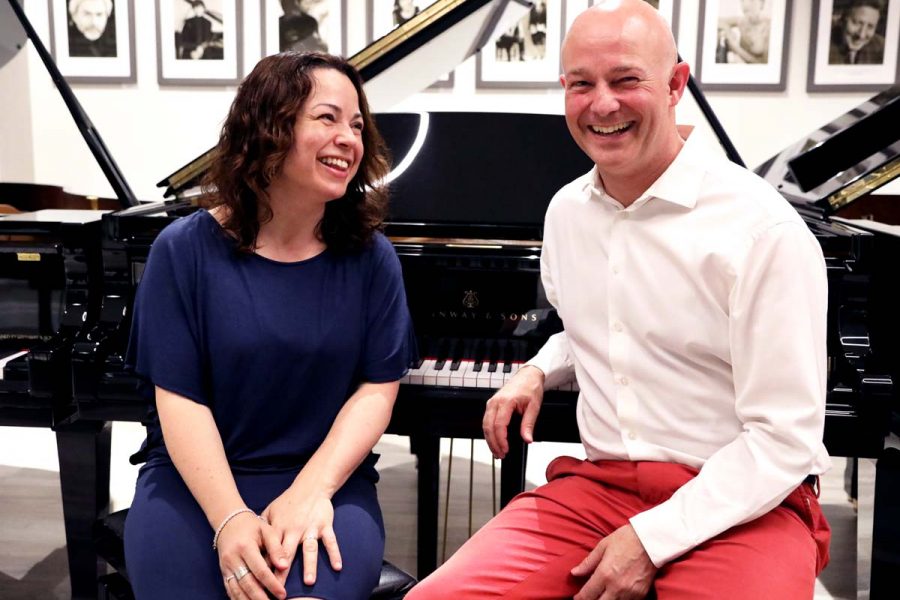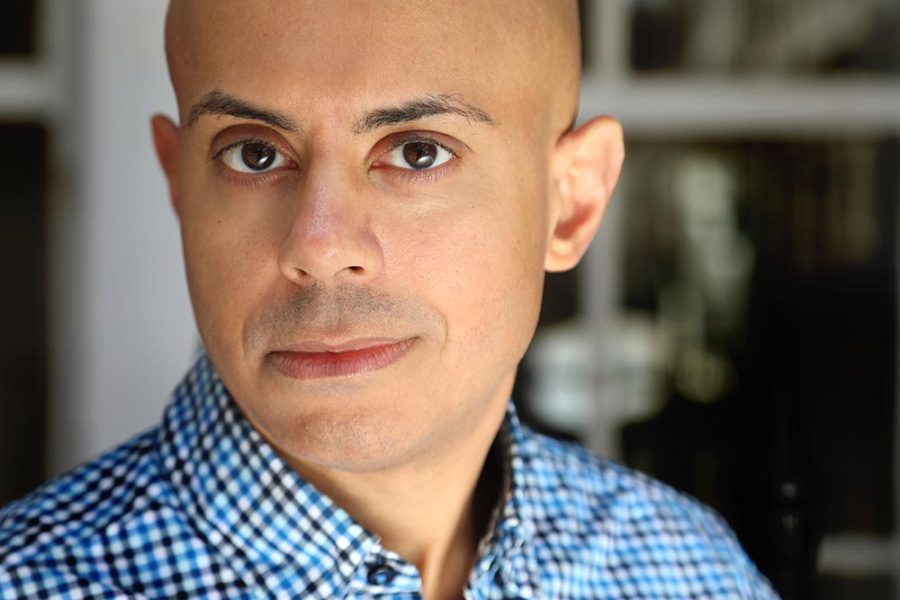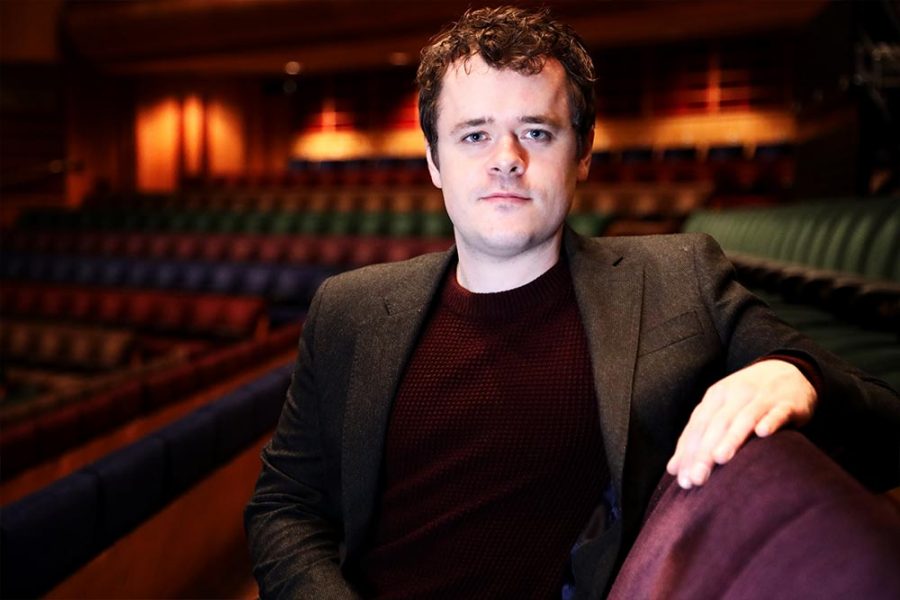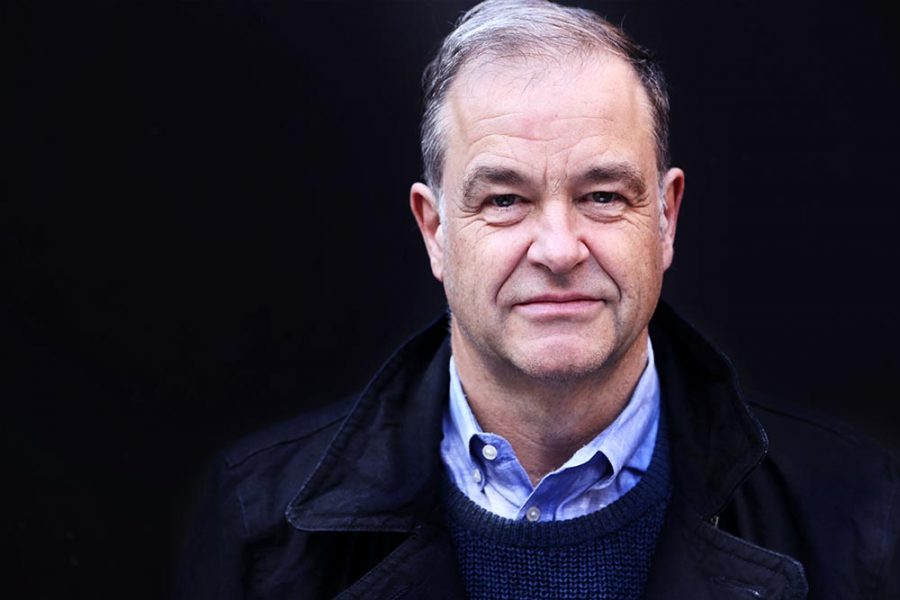A Life in Music: Seymour Lipkin

July 2015
Words by
Emer Nestor
Photos by
Frances Marshall
Since winning first prize at the Rachmaninoff International Piano Competition in 1948, Detroit-born Seymour Lipkin embarked on a distinguished career as one of the highly-regarded concert pianists of the twentieth century.
He has made numerous appearances with America’s leading orchestras, such as the New York Philharmonic, the Boston Symphony, the Philadelphia Orchestra, the Cleveland Orchestra, and the Chicago Symphony Orchestra, as well as many other major American ensembles. As a pianist and conductor, Lipkin has collaborated with Serge Koussevitzky, Fritz Reiner, Charles Munch, Leonard Bernstein, Eugene Ormandy, William Steinberg, George Szell, Christopher von Dohnányi, Kenneth Schermerhorn, Gerard Schwarz, and George Cleve, to name but a few. His recording portfolio includes the entire piano sonatas of Beethoven, the complete sonatas and major piano works of Schubert, several works with the New York Philharmonic and Leonard Bernstein (including Stravinsky’s Concerto for Piano and Wind), as well as the complete violin works of Schubert with Arnold Steinhardt. Lipkin holds pedagogical positions in the piano and chamber music faculties of the Curtis Institute of Music, and the Juilliard School. He is also Artistic Director of the Kneisel Hall Chamber Music Festival and School, in Blue Hill, Maine.
Now in his 88th year, Lipkin still enjoys a thriving concert schedule, and shows no signs of slowing down any time soon. Final Note met with the vibrant and utterly charming pianist in his apartment in New York, to chat about his studies with Rudolf Serkin and Mieczyslaw Horszowski, life as a concert pianist, and his memories of working with Leonard Bernstein.
I cannot remember when music was not part of my consciousness. It must have been from earliest years."

Did your violinist grandfather have much influence on your early musical development?
My grandfather separated from the family before I was born, but my parents wanted me to be a violinist, obviously because of him. When a friend who was a cantor sang a note for me in my crib, I repeated it back to him (according to my parents), demonstrating perfect pitch. My father played the violin, but only well enough to play in the Doctors’ Symphony Orchestra (he became a physician). They were advised that 3 years old was too soon to begin the violin, so they started me on the piano instead. At the age of 6 or 7 I studied both instruments. Around 10 they asked the then concertmaster which instrument he advised; he later told me he had looked at my rather short stubby fingers, and advised them to have me study the piano. In later years, he told me that had he looked at my fingers then, he would have advised the violin…. Too late!!! Anyway, I liked the piano because it could make more noise than the violin.
Has music always coursed through your veins?
I cannot remember when music was not part of my consciousness. It must have been from earliest years.
How did you come to study at the Curtis Institute of Music in Philadelphia?
My piano teacher in Detroit, Mr Boyke, had lost his voice as a result of being gassed in the First World War. He knew his time was limited, and advised my parents to send me to Curtis. It did not hurt that it was an all-scholarship school. I auditioned (at the age of 10 or 11) and was accepted. The school insisted that I have some family support because of my age; I had an aunt who lived in Philadelphia and I could stay for a while with her. My mother stayed with me for the first year or so, then she had to return to Detroit to my father and younger sister. I roomed with one family after another during my stay there (9 years).
From your lessons with Rudolf Serkin and Mieczyslaw Horszowski, what part of their legacy have you aspired to pass on to your own students?
Rudolf Serkin had a powerful and really decisive influence on my thinking, which continues to this day, and which inevitably determines my attitude towards my own students. He quietly and powerfully transmitted the attitude that we are here to understand and convey the ideas and feelings of the giants whose music we are performing. Anything short of full absorption of, and concentration on, what they were telling us was really a betrayal and not to be respected. We were to understand this, not only from his comments, but also from his (often) silent disapproval. Showing off our own skill was, or should be, beneath our dignity. This point of view continues to pervade my own attitude and what I try to convey to my students. In my lessons with Mr Horszowski, who was certainly a wonderful artist, I found him very deferential towards Mr Serkin and reluctant to impose his own ideas, although his own point of view was very much in sympathy with Mr Serkin’s.
Having won first prize at the Rachmaninoff competition in 1948, were you prepared for what followed, and how did you find the life of the concert pianist?
My life of course changed decisively after the Rachmaninoff contest. When Vladimir Horowitz announced my name as the winner, my first thought was: “Oh My God, I am going to have to practise so much!“… and also in the background was the disappointment that my main ambition, to be a conductor, was going to have to be put to one side—I didn’t tell anyone this at that point. Now I can tell you that early on I had an interviewer on the phone from Time magazine (I think); I started to say something about wanting to be a conductor, and got a frantic signal from our publicity person to keep that quiet. Of course, the first two years were crammed full of concert engagements. Even at that age, I wound up pretty exhausted. Playing that many concerts was a test of keeping focused, but it had to be done—lots of publicity.
How would you define the value of the Master Class?
Master classes of course acquaint the participant with the views of someone other than their regular teacher, and it is hoped that they can integrate these views, presumably of a distinguished person, with those they already have. It is even valuable when the ideas are very different from those of their regular teacher.

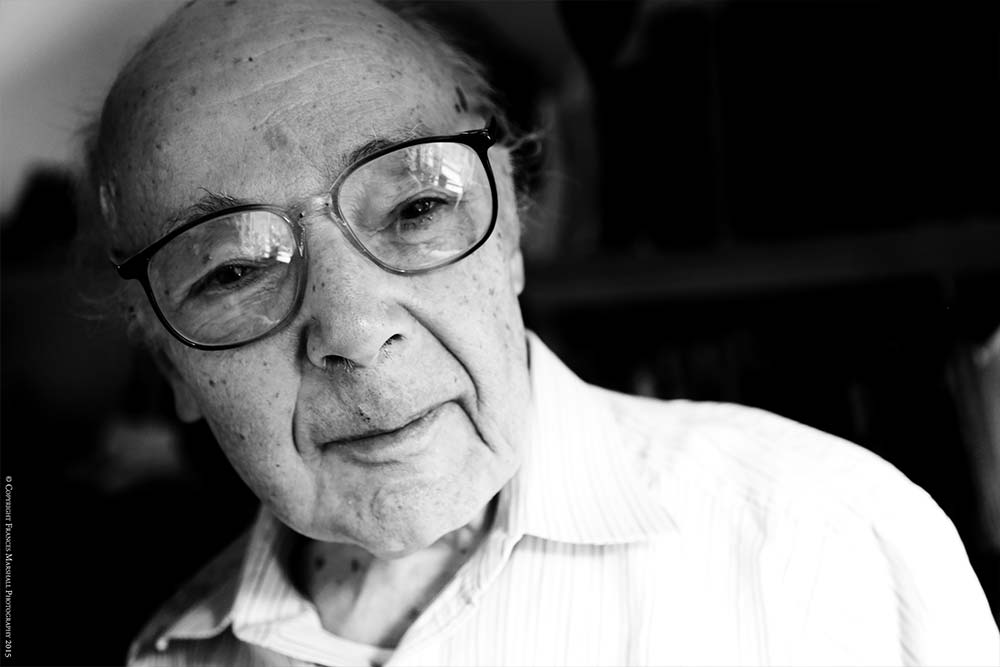


It is every musician's challenge and obligation to confront and master these giant works...as many as possible."

What draws you to the music of Beethoven, and how would you define your contribution to the canon of recordings of his 32 sonatas?
It is every musician’s challenge and obligation to confront and master these giant works…as many as possible. I have so far played, in addition to all the sonatas, all the concertos, the entire violin and cello sonatas, almost all the chamber music, and have conducted all nine symphonies. Others will have to define whether I made a contribution to this ‘canon’.
As a classical musician, how do you find the entire recording experience?
The recording experience is a difficult one. The challenge is to retain the sense of spontaneity and continuity, while dealing with the necessity of correcting any errors, even minor ones, which are almost impossible to avoid in performance. I insist on doing my own editing, so as to make the decisions of tempo and the choice of tempi and energy, on my own. I have seen recordings, which vitiated the beautiful qualities of the recording sessions, by insensitive editing to correct minor errors, by the editor.
What motivated you to train as a conductor — how does your experience of the score alter in this role when compared to that as a pianist?
Conducting allows one to deal with sounds of massive energy and power, which are not available to a single instrument. However, one is not actually making the music oneself, but has to evaluate and convince other artists, the members of the orchestra, about one’s ideas. It is a fascinating obligation, because each orchestra member has his/her own sense of how the music should go, and one has to persuade them to put this aside and participate in the conductor’s ideas and feelings. If he/she fails to do this, that person is no conductor.
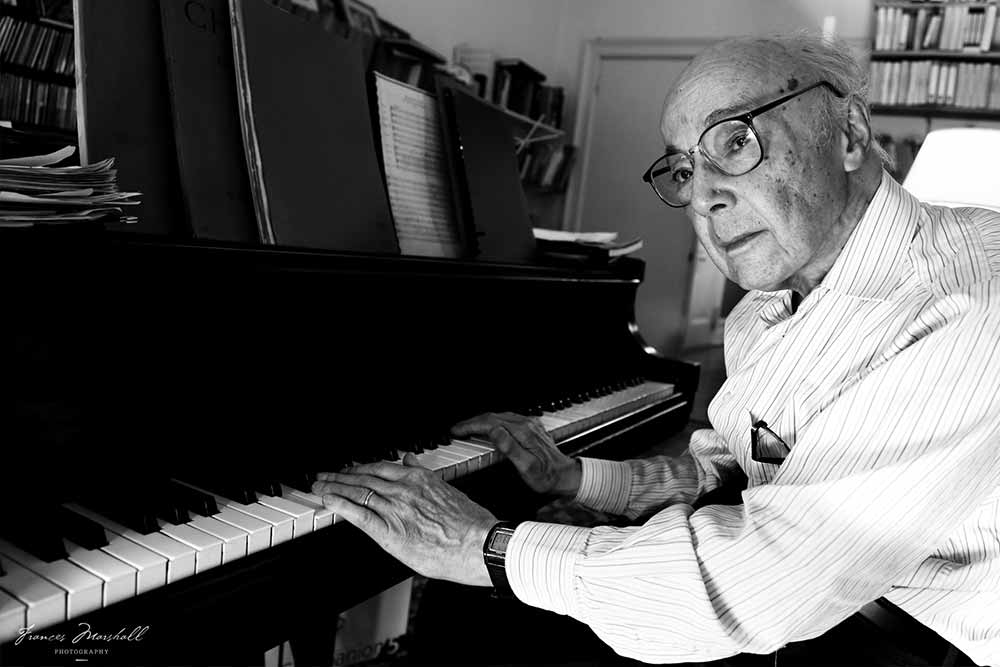


Do you have any interesting anecdotes to share from your time with Leonard Bernstein?
Bernstein was a very complex personality. One had to watch out, because he would frequently include a hidden test in his instructions, to see if you knew what you were doing. Once, I was assistant when he conducted Stravinsky’s Rite of Spring, with the Philharmonic in the Parks. The final section contains complex rhythmic changes; Bernstein rebarred this section to make it more practical. I had only a few days to be ready, as an assistant should, but said to myself: “Watch out, he will pull something“…so, I made sure to learn his revisions of the bar rhythms, even if learning the entire score was impossible in that amount of time. Sure enough, he sent his son over to me, saying: “My father would like to listen to the last section from the audience; Please conduct it!“—Ouch!!! I was scared to death, but did it, and passed the test.
I was the assistant on a tour with the Philharmonic that included a concert in Lebanon. They would not let Bernstein conduct, not because he was Jewish, but because he was too close to the government in Israel. I conducted that concert, but only after assuring them that I would in no way deny that I am Jewish. I had a grand total of 45-minutes rehearsal for the entire concert! However, this meant that the orchestra was really on its toes, and the concert went off very well…probably better than if I had had lots of rehearsal.
What have been your most memorable performances?
Lots! In particular, I recall the time leading up to my performance of Ravel’s Piano Concerto for the Left Hand [D minor] with the Boston Symphony Orchestra, Charles Munch conducting [1953]. I went to his hotel to rehearse, and he said: “Mon petit (‘Little fellow’), you know I know this piece…I played it with Ravel.” I replied: “Of course, Maître, anything you wish I will do.” He started the allegro in a very slow tempo. I thought, “Oh, my God, how can I do it like that?” So, I went home and practised, to get it reasonable in that tempo. At the rehearsal with orchestra he started much faster, in a fairly normal tempo. I was very relieved. At the performance, he started way faster, so I could hardly keep up. That was how he was; things were not decided beforehand, but done on the spur of the moment—very spontaneous and exciting, but hard to live with and pretty scary! I tried to get a recording of that performance, but that particular concert recording was destroyed in a fire.
Tell us about your involvement in the Kneisel Hall Chamber Music Festival.
I have been artistic director at Kneisel Hall now for 27 years. It is a great pleasure. We give weekly pairs of concerts, in various chamber combinations, with my colleagues, all of whom are of real distinction. We have 50 young artists, whom we combine into various chamber groups, and all of us coach them intensively and regularly. I participate actively in all these functions, coaching and performing. In the end, I do have to oversee all these activities, although my colleagues are of course functioning individually, and through their own high standards.
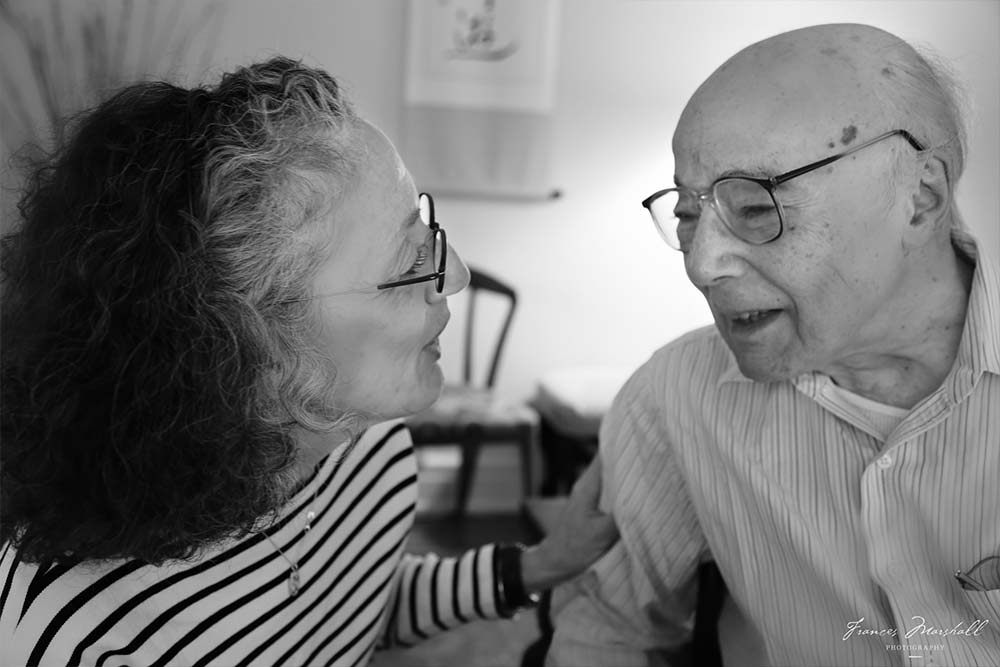

What score is currently on your piano stand?
On my piano stand are all ten chamber works I am performing this summer, plus Mozart concerto K. 595, which I will perform in July in California at the Midsummer Mozart Festival.
How have your hands held up over such a long and distinguished career as a performer?
My hands seem in good shape so far; no problems have shown up. I do have a set of regular loosening up exercises, which I hope have contributed to the continuing reliability.
What makes you happy?
Lots of things; at the moment I am delighted with Mozart and his endless stream of ideas, and the humor and wit involved.
What’s next on the horizon?
I have just been asked to play a concert (in the Gardner Museum) on my 90th birthday in two years. I am worrying about the program, because I have already played all the Beethoven sonatas and all the Schubert sonatas there. I am hoping to duplicate Mr Horszowski’s feat of a beautiful recital at 100.
All images displayed in this article are subject to copyright.
Share this article


